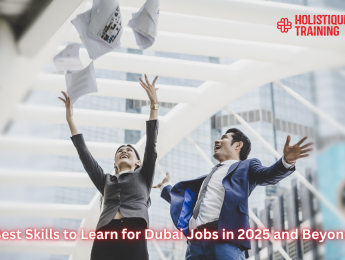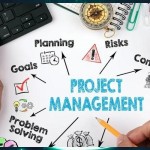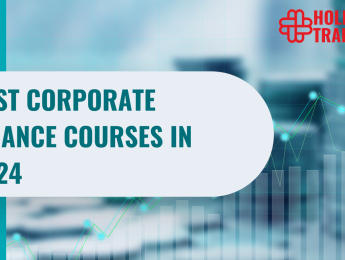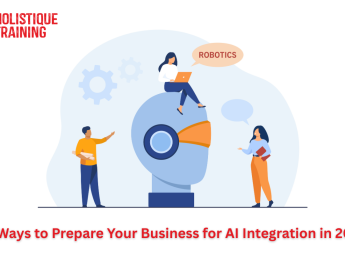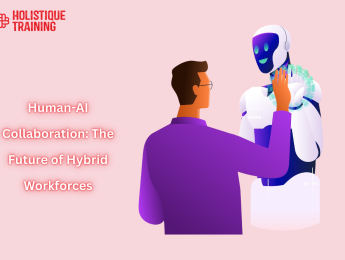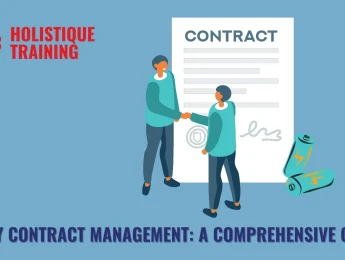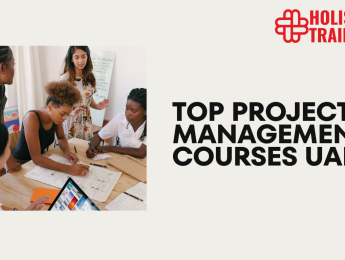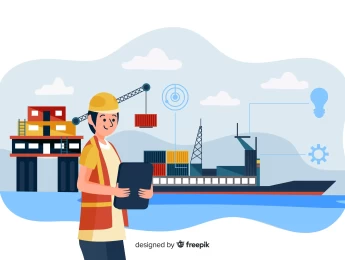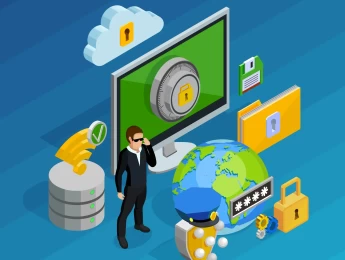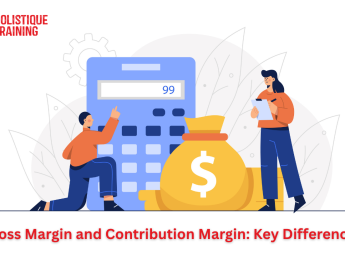- Table of Contents
- 1. Introduction
- 2. Understanding the Dubai Job Market in 2025
- 3. Digital Literacy and Tech Savviness
- 4. Data Analysis and AI Skills
- 5. Sales and Digital Marketing
- 6. Project Management and Agile Methodologies
- 7. Communication and Multilingual Skills
- 8. Financial Literacy and Accounting Tools
- 9. Customer Service and Soft Skills
- 10. Adaptability and Remote Work Competencies
- 11. Legal and Regulatory Knowledge (for Expats)
- 12. Conclusion: Building a Future-Proof Skillset in Dubai
1. Introduction
Dubai, the economic heart of the United Arab Emirates (UAE), has rapidly transformed into one of the world’s most dynamic and progressive career hubs. With its strategic geographic location, tax-free salaries, and state-of-the-art infrastructure, Dubai continues to attract professionals from around the globe. The city is home to more than 200 nationalities, making it one of the most multicultural environments for work and life.
The Emirate’s government has implemented future-oriented strategies such as "Dubai Economic Agenda D33" and "Smart Dubai," which aim to diversify the economy, promote sustainability, and digitise public services. These initiatives have led to increased demand for skilled professionals in fields such as technology, healthcare, education, construction, and finance.
Moreover, Dubai's business-friendly policies, low crime rate, and high living standards contribute to its appeal for expatriates seeking personal and professional growth. Its vibrant lifestyle, modern infrastructure, and constant stream of global events make it an attractive destination not only for tourism but also for long-term career prospects.
In this article, we will explore the most valuable skills you can learn today to stay competitive in Dubai’s job market. We’ll examine how different sectors are evolving, highlight in-demand skillsets, and provide resources to help you prepare for a successful career in the UAE.
2. Understanding the Dubai Job Market in 2025
Dubai's job market in 2025 reflects the city's commitment to innovation and economic diversification. According to the UAE Federal Competitiveness and Statistics Centre, the non-oil sectors now contribute over 70% of the GDP, with key industries showing remarkable growth.
Technology is at the forefront, driven by the government's smart city initiatives and increased investment in artificial intelligence. Demand for software developers, cybersecurity experts, and AI specialists is surging. Healthcare continues to expand, especially in telemedicine and medical tourism. Real estate and construction remain central due to the city’s ongoing infrastructure development, including mega-projects like Expo City Dubai.
The hospitality and tourism sector has rebounded strongly post-pandemic, with Dubai ranking among the most visited cities globally. Roles in hotel management, event planning, and culinary arts are in high demand. Education is evolving with a focus on digital learning, requiring educators to upskill in EdTech and hybrid teaching models. Additionally, financial services have seen a sharp pivot towards fintech and digital banking solutions.
All these sectors share a common need for professionals with technical proficiency, soft skills, and international awareness. The emphasis is shifting towards multi-skilled individuals who can navigate hybrid environments and contribute to both local and global initiatives.
3. Digital Literacy and Tech Savviness
In a digitally-driven economy like Dubai's, digital literacy is no longer optional—it’s foundational. Whether you work in sales, logistics, administration, or engineering, employers expect proficiency in core digital tools and an understanding of how to use technology to drive efficiency and innovation.
Mastering Microsoft Excel, Google Workspace, and basic cybersecurity protocols has become a prerequisite. Excel is not just for calculations; it enables professionals to analyse data trends, build reports, and forecast outcomes. Google Workspace tools like Google Docs, Sheets, and Meet are central to collaboration in hybrid or remote teams.
Cyber hygiene is also critical. With increasing cybersecurity risks, knowledge of safe data handling, password protocols, and phishing awareness is valued across industries. Digital literacy extends to cloud platforms such as Microsoft OneDrive or Google Drive, and the use of CRMs like HubSpot or Salesforce.
Moreover, familiarity with workflow automation tools like Zapier, Notion, or Monday.com can make professionals more efficient, freeing up time for strategic tasks.
The UAE government has prioritised digital transformation as part of its Vision 2031, meaning that digitally savvy employees are now vital assets to any organisation. This shift also opens up opportunities for continuous upskilling, with free or affordable courses available on platforms such as Coursera, LinkedIn Learning, and Google Digital Garage.
In essence, tech-savviness enables you not only to operate digital tools but to contribute to strategic digital initiatives within your company—a key competitive advantage in Dubai’s modern job market.
4. Data Analysis and AI Skills
Dubai’s ambition to become a global digital economy leader has significantly boosted demand for professionals skilled in data analysis and artificial intelligence. Across sectors like e-commerce, real estate, banking, and logistics, data-driven decision-making is central to business growth.
Skills in tools like Python, SQL, Power BI, and AI platforms such as ChatGPT are increasingly required. These tools help companies analyse customer behaviour, optimise operations, and predict market trends. For example, real estate developers use data models to forecast demand in certain districts, while e-commerce firms track buying habits in real-time.
Below is a comparison of key data and AI tools relevant to Dubai’s job market:
Skill/Tool | Use Case | Industry Examples |
Python | Data cleaning, machine learning models | Fintech, Logistics |
SQL | Database querying and management | Banking, Real Estate |
Power BI | Interactive dashboards and reports | Retail, Marketing |
ChatGPT | Automating customer support, content gen | E-commerce, HR |
Professionals with these skills are increasingly in demand for roles likeData Analyst, Business Intelligence Specialist, and AI Consultant. Learning platforms such as DataCamp and IBM SkillsBuild offer structured training paths in these areas.
Dubai’s vision for smart governance and AI integration into public services further confirms that data skills are not just useful—they are essential for future employability.
5. Sales and Digital Marketing
In a commercially vibrant city like Dubai, the demand for professionals with sales and digital marketing expertise continues to grow exponentially. This is due to the explosive expansion of startups, multinational corporations, and a rapidly evolving e-commerce ecosystem. As companies compete for visibility and customer engagement in both local and global markets, the need for marketers who can generate leads, build brand awareness, and drive conversions has become critical.
Core competencies in this field include Search Engine Optimisation (SEO), Google Ads, social media advertising, email marketing, and the use of Customer Relationship Management (CRM) platforms like Salesforce, Zoho CRM, or HubSpot. In addition, knowledge of content marketing, performance analytics, conversion rate optimisation (CRO), and influencer marketing strategies are increasingly valued.
To succeed, marketers must not only be creative but also data-driven, capable of interpreting analytics and continuously refining campaigns based on performance. Digital professionals must keep pace with global platforms like Meta Ads Manager, TikTok Ads, and AI tools like ChatGPT for campaign planning, content generation, and automation.
Sales professionals, on the other hand, are expected to combine persuasion skills with product knowledge and client management in a culturally diverse market. Consultative selling techniques and account-based marketing are growing in relevance across B2B industries.
According to a 2023 Statista report, the UAE’s digital advertising revenue is projected to reach USD 1.3 billion by 2025, indicating high demand for skilled digital talent:
6. Project Management and Agile Methodologies
Dubai's pace of development—especially in areas like smart infrastructure, government digitalisation, and real estate—makes project management a mission-critical discipline. Companies across industries seek professionals who can take ownership of initiatives, align stakeholders, manage risk, and ensure delivery within scope and budget.
Recognised certifications such as PMP (Project Management Professional), PRINCE2, and Certified Scrum Master (CSM) not only strengthen your CV but are often a hiring requirement in both private and public sectors. These credentials confirm your ability to handle timelines, resource allocation, quality assurance, and team leadership.
In agile organisations—particularly in tech, fintech, and media—professionals familiar with Scrum, Kanban, or Scaled Agile Framework (SAFe) enjoy a competitive advantage. These methodologies support iterative development, adaptability, and continuous improvement—principles that are deeply aligned with Dubai’s innovation vision.
Digital project managers are expected to master tools like Jira, Asana, Trello, ClickUp, and Microsoft Project. These platforms allow for cross-functional collaboration, milestone tracking, backlog prioritisation, and performance analytics.
From mega infrastructure projects to app launches and ESG transformation programmes, project managers play a key role in keeping Dubai’s growth sustainable and future-ready. Their skillsets are also in high demand across the GCC region, particularly in Saudi Arabia’s Vision 2030 projects.
7. Communication and Multilingual Skills
Communication is more than just speaking a language—it’s about bridging cultures, inspiring action, and aligning vision. In Dubai, where over 85% of the population is expatriate, being an excellent communicator can open doors across every industry.
Fluency in English is essential for all professional settings. However, having proficiency in Arabic gives candidates a distinct advantage—especially in roles involving public sector coordination, law, education, or media. Additionally, languages like Hindi, Urdu, Tagalog, Mandarin, and Russian are useful in Dubai’s tourism, retail, and logistics sectors.
Effective communication involves much more than speaking. It includes strong business writing, presentation skills, email etiquette, and active listening. Employers seek professionals who can negotiate, resolve conflict, and lead discussions in cross-functional and multicultural teams.
Dubai-based institutions such as Eton Institute, The British Council, and public speaking academies offer a range of communication training, from accent reduction and Arabic for expats to negotiation techniques and TED-style presentation coaching.
Professionals with multilingual capabilities and high emotional intelligence are often entrusted with client-facing, leadership, and cross-border liaison roles. These skills are particularly critical in sectors like aviation, hospitality, luxury retail, and international consulting.
8. Financial Literacy and Accounting Tools
In a city that hosts regional HQs of global banks, investment firms, and tech unicorns, having financial literacy is indispensable—even if you’re not in finance. Every department—from operations and HR to marketing and product development—relies on team members who can understand cost implications, forecast revenue, and contribute to budget planning.
At a minimum, professionals should know how to read profit & loss statements, calculate return on investment (ROI), and interpret cash flow reports. This becomes even more important for startup founders, project leaders, and procurement specialists who manage vendor negotiations and pricing models.
Dubai companies widely use accounting software such as:
- QuickBooks – Ideal for SMEs and freelancers.
- SAP and Oracle ERP – Used in large enterprises and multinationals.
- Tally – Popular in small and mid-size Indian-run businesses.
- Microsoft Dynamics 365 – For integrated business and finance operations.
Moreover, understanding the UAE’s tax structure—including 5% VAT and the recently introduced corporate income tax—has become a necessity for compliance, planning, and reporting. Non-compliance can lead to serious penalties, making financial accuracy a legal as well as strategic imperative.
To advance in this domain, many professionals pursue global qualifications like ACCA, CIMA, or CPA, while others start with online short courses in bookkeeping, budgeting, and financial modelling from platforms such as Udemy, Coursera, and CFI.
9. Customer Service and Soft Skills
Dubai’s reputation as a global hub for luxury tourism, premium services, and world-class hospitality makes customer service excellence a business imperative. Companies look for professionals who combine technical knowledge with human touch—ensuring that clients and guests receive personalised, culturally appropriate, and solution-oriented interactions.
Soft skills such as:
- Empathy
- Emotional Intelligence (EQ)
- Problem-solving
- Adaptability
- Conflict resolution
...are among the top traits employers assess during interviews and performance reviews.
In sectors like aviation, real estate, education, telecom, and retail, customer satisfaction directly influences brand reputation, loyalty, and revenue. As such, professionals must know how to de-escalate issues, build trust, and manage expectations across a diverse customer base.
Training programmes from organisations like Dubai College of Tourism, KHDA-accredited institutes, or luxury brand academies equip frontline staff and managers alike with international-standard service protocols.
Soft skills are often the reason people get promoted, retained, or trusted with leadership roles. In a city that blends ambition with diversity, mastering emotional intelligence can set you apart as a resilient, impactful professional.
10. Adaptability and Remote Work Competencies
The global shift to hybrid and remote work has deeply impacted Dubai’s job landscape, especially in technology, media, and consulting sectors. Employers now value professionals who exhibit strong adaptability, self-management, and virtual collaboration skills.
Key remote work competencies include:
Competency | Description | Tools/Examples |
Time Management | Prioritising tasks and avoiding distractions | Google Calendar, Pomodoro apps |
Communication | Clear written and verbal digital interaction | Slack, Zoom, Microsoft Teams |
Task Organisation | Managing deliverables and tracking workflow | Trello, Notion, Asana |
Digital Collaboration | Working with distributed teams across time zones | Miro, Figma, Google Docs |
These competencies are vital in Dubai’s global economy, where many companies serve international clients or operate across continents. Being able to manage your workload independently while staying engaged with team goals is a major asset.
Training platforms such as Coursera and Skillshare offer focused courses on remote productivity, digital etiquette, and managing virtual teams.
Moreover, being tech-fluent allows remote professionals to seamlessly transition between home and office setups, supporting Dubai’s smart workspace vision.
11. Legal and Regulatory Knowledge (for Expats)
Working in Dubai requires not only professional skills but also an understanding of the UAE’s labour laws, visa regulations, and business compliance frameworks. This is especially crucial for expats working in legal, HR, compliance, or administrative roles.
Key knowledge areas include:
- Labour contracts (limited vs unlimited).
- End-of-service benefits.
- Employment visa types and sponsorship.
- Working hours and overtime laws.
- Grievance and dispute resolution mechanisms.
Familiarity with the UAE Labour Law helps professionals protect their rights and responsibilities. HR professionals, for instance, must also understand Emiratisation policies, insurance mandates, and data protection laws.
Additionally, legal compliance is critical in sectors like construction, real estate, and international trade. Misunderstanding zoning laws, licensing procedures, or taxation rules can have serious implications.
Training in UAE labour compliance, contract management, and corporate governance is available through institutes like the DIFC Academy and Khaleej Times Learning.
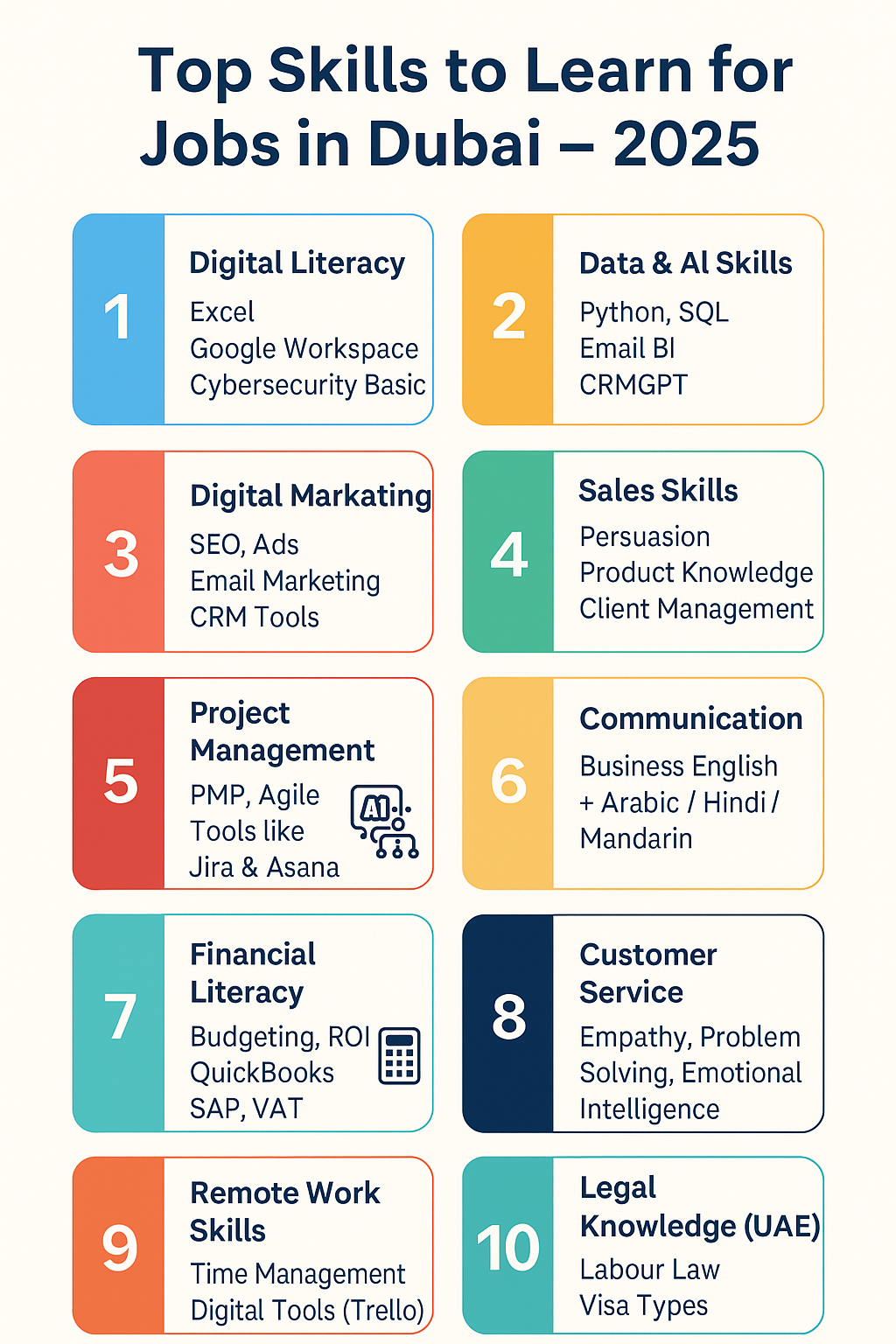
12. Conclusion
Dubai’s future-focused vision presents ambitious opportunities for professionals ready to grow, adapt, and lead. To thrive in this environment, building a future-proof skillset is not just recommended—it’s essential.
As we’ve discussed, this means blending technical competencies such as data analysis, project management, and digital marketing with interpersonal capabilities like communication, emotional intelligence, and customer service. It also requires staying aware of legal regulations, market trends, and the evolving demands of the workplace.
Continuous learning is the linchpin of sustainable career success. By pursuing recognised certifications, enrolling in up-to-date training programmes, and engaging in practical, project-based learning, professionals can ensure they remain competitive in Dubai’s dynamic market.
It is also worth investing in soft skill development through coaching, mentorship, and international networking. These qualities often make the difference between good employees and great leaders.
Whether you're a newcomer to the region or a seasoned professional seeking your next step, now is the time to equip yourself with versatile, in-demand skills that align with Dubai’s trajectory.
Enroll in our courses to enhance your skills and position yourself for success in the UAE job market. Our expert-designed programmes are tailored to meet the needs of Dubai's fast-changing economy and are ideal for both local professionals and expats.


